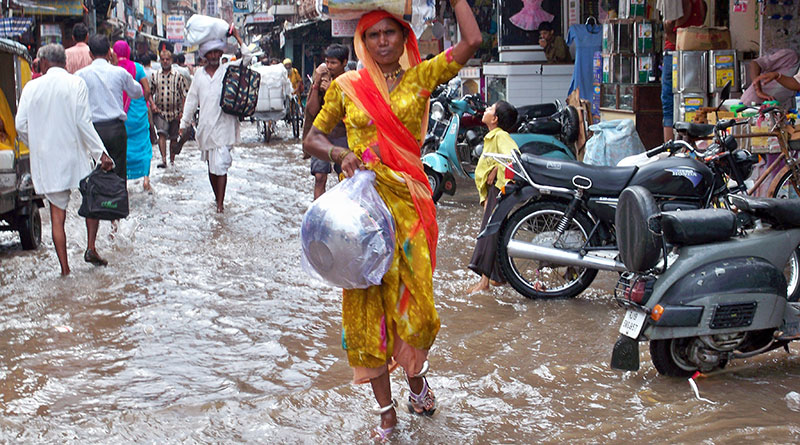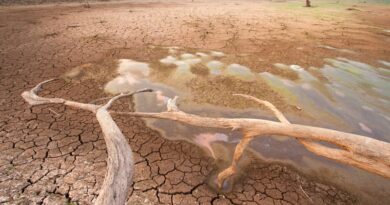Climate-related disasters jump 75 per cent during last 20 years; India second most affected by floods

Extreme weather events have come to dominate the disaster landscape in the 21st century with as many as 7348 major recorded disaster events claiming 1.23 million lives during the 2000-2019 period, a new report by the UN Office for Disaster Risk Reduction (UNDRR) has said.
These disasters have hit Asia the hardest followed by the Americas and Africa and affected 4.2 billion people resulting in approximately $2.97 trillion in global economic losses, the report said.
According to researchers, who put together the report, climate change is largely to blame for a near doubling of natural disasters in the past 20 years. The 2000-2019 figure far outstrips the 4212 major natural disasters recorded between 1980 and 1999, the report – The Human Cost of Disasters 2000-2019 – published to mark International Day for Disaster Risk Reduction on October 13, said.
Floods and storms were the most prevalent events during the recent 20-year period, with India being the second most affected country by floods after China. The number of major floods has more than doubled over the last 20 years, from 1389 to 3254, while the incidence of storms grew from 1457 to 2034.
The report also records major increases in drought, wildfires and extreme temperature events. There has also been a rise in geo-physical events including earthquakes and tsunamis, which have killed more people than any of the other natural hazards reviewed in the report.
Between 1980 and 1999, 4212 disasters were linked to natural hazards worldwide claiming approximately 1.19 million lives and affecting 3.25 billion people. These disasters had resulted in approximately $1.63 trillion in economic losses.
Much of this difference was explained by a rise in climate-related disasters, including extreme weather events – from 3656 climate-related events during the period 1980-1999 to 6681 climate-related disasters in the period 2000-2019.
Shifting rainfall patterns and greater precipitation variability also contribute to the increase by placing the 70 per cent of global agriculture that is rain fed, and 1.3 billion people dependent on it, at significant risk.
“It is baffling that we willingly and knowingly continue to sow the seeds of our own destruction, despite the science and evidence that we are turning our only home into an uninhabitable hell for millions of people,” wrote UNDRR chief Mami Mizutori and Debarati Guha-Sapir from Belgium’s Center for Research on the Epidemiology of Disasters, in a foreword to the report.
“We are wilfully destructive. That is the only conclusion one can come to when reviewing disaster events over the last 20 years”, said Mizutori, accusing governments of not doing enough to prevent climate hazards and calling for better preparation for looming disasters.
“The odds are being stacked against us when we fail to act on science and early warnings to invest in prevention, climate change adaptation and disaster risk reduction,” she said.
While concentrated impact due to a single disaster type in some countries provides an opportunity for a more focused approach on disaster risk reduction, researchers say that “Covid-19 demonstrates the need for a systemic, multi-hazard approach in an increasingly globalized and interconnected world”.
They also recommended strengthening disaster risk governance to manage disaster risk with clear vision, plans, funding and coordination across sectors and in a way that takes account of the increasingly systemic nature of disaster risk.
While the report credits improvements to early warning systems and disaster preparedness and response for “a reduction in loss of life in single-hazard scenarios,” it highlights the “increasingly systemic nature of disaster risk.”
Events’ overlap and interplay with other risk drivers, including poverty, climate change, population growth in hazard-exposed areas, uncontrolled urbanization, and biodiversity loss, expose the need to further strengthen disaster risk governance, the report notes. The report warns that inability to understand and manage systemic risk jeopardizes the achievement of the Sendai Framework and the SDGs.
“It really is all about governance if we want to deliver this planet from the scourge of poverty, further loss of species and biodiversity, the explosion of urban risk and the worst consequences of global warming,” concluded Mizutori and Guha-Sapir.



